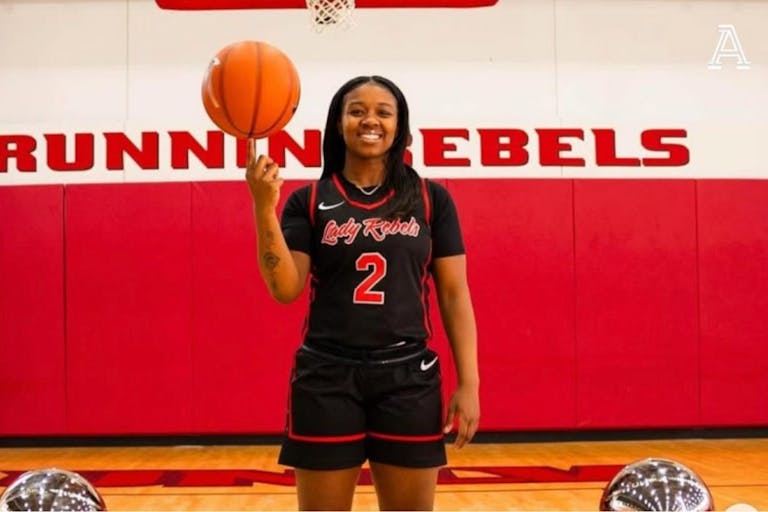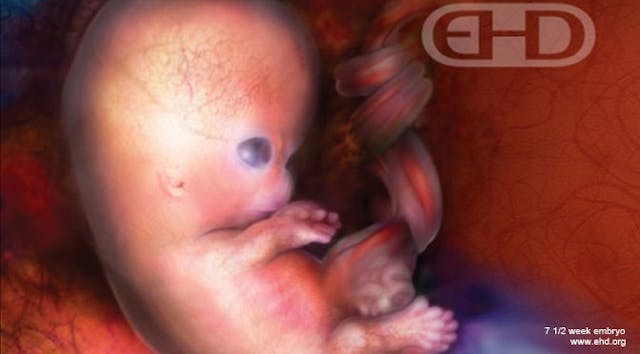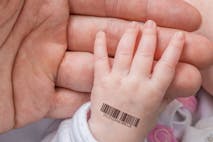
College basketball star proves motherhood doesn't derail your dreams
Nancy Flanders
·
Pressured into abortion, this pro-choice woman says she regrets it
I recently stumbled across a woman’s abortion story posted on the pro-choice website Feminizing in 2010. When the writer became pregnant, she and her partner had very little money. She had an abortion because they didn’t think they could support the baby. The author identifies herself as “pro-choice” and maintains, “I will always be pro-choice.” Yet she freely admits that she regrets her abortion.
The author and her partner were not using birth control because her partner was believed to be sterile. When the author found out she was pregnant, her first impulse was to keep the baby. She says:
I don’t view fertilized eggs as human beings, but I developed a very strong attachment to my embryo as soon as I saw the two pink lines on the test. I didn’t want an abortion. I wanted a baby.
She and her partner turned to their families for help. Her mother mocked her and told her that if she had the baby, she would become an “aspiring welfare-mama” and her baby would be “a leech on society.” The mother told her to have an abortion. She was not willing to help with the financial costs of raising the baby. Her partner’s father was also extremely unsupportive. She recalls him saying he would not “play grandpappy” for a “bastard child.” After heaping verbal abuse on the woman, he offered to pay for an abortion.
The author then says she went to a crisis pregnancy center for help, but they offered her no financial assistance. This is odd, because the crisis pregnancy centers generally do offer many material items and help applying for benefits. Assuming the author’s recollection is accurate, perhaps this center did not have enough resources.
Reluctantly, the couple decided to abort. The author says:
We wanted to have a baby. By the time I made my decision and accepted my mother’s money to terminate the pregnancy, I was very attached to the pregnancy. I dreamed every night about nursing and rocking my baby in a warm living-room, moonlight streaming through the curtains. I dreamed about a beautiful natural birth attended by a midwife. I dreamed about falling in love with my baby and being a wonderful mother. My partner fell asleep every night with his hand over my womb, and I knew it was what he wanted, too. But that wasn’t the course that was set out for us.
She was nine weeks along when she had the abortion. At this stage, the preborn baby has a heartbeat, brainwaves, and fingers and toes. The baby can move and have the hiccups, and is already right or left handed.

The author got little support from her friends:
Because everyone knows I’m pro-choice, none of my friends or family members– besides my partner– seemed to understand my agony.
She describes her regret:
Article continues below
Dear Reader,
In 2026, Live Action is heading straight where the battle is fiercest: college campuses.
We have a bold initiative to establish 100 Live Action campus chapters within the next year, and your partnership will make it a success!
Your support today will help train and equip young leaders, bring Live Action’s educational content into academic environments, host on-campus events and debates, and empower students to challenge the pro-abortion status quo with truth and compassion.
Invest in pro-life grassroots outreach and cultural formation with your DOUBLED year-end gift!
I was horribly depressed for several months. I bled a lot. I couldn’t have sex for months because I was so traumatized by all of it.
It’s been four years. We’re much more financially stable. We both have full-time, lucrative jobs and we’re looking into buying a house. Two years ago, we stopped using birth control. We haven’t conceived yet.
Believing that the baby she conceived was a “miracle,” the author wonders if she will ever conceive again with her partner.
She also acknowledges that many pro-choice women would not understand her painful feelings:
I know that a lot of my fellow feminists would react rationally– it wasn’t the right time, we couldn’t afford a baby, we can always adopt, maybe we should look into IVF. But it’s not the same. I wanted the first embryo I conceived. We wanted to have a baby together…
The author’s testimony shows that despite all the rhetoric about “choice,” many women who have abortions feel they have no choice. Abortion is not empowering for women. It is often something done out of desperation, something seen in the moment as the least-awful of several very awful options. This woman was not empowered by her abortion; she did not exercise her “right to choose.” She had the abortion because she was pressured into it by her life circumstances. And now she is full of grief and regret.
If abortions weren’t legal, and weren’t readily available to women, society would need to learn to adapt provide for mothers and their children. As long as people are able to say “but why can’t she just get an abortion?” there is no real incentive to make things better for single mothers and poor families. Programs to help women and children, and laws supporting things like paid maternity leave, are not a priority in our society because abortion is available on demand. Abortion, therefore, has become the default solution for a crisis pregnancy. It has become the expected way out.
With few social supports, abortion becomes the only real “choice” poor women feel they can make. These women have far less “choice” than the pro-abortion movement claims. As long as abortion is legal, society can expect mothers to sacrifice their babies for social and financial reasons.
Legal abortion is the excuse that allows society to deny women services and make changes that could help them support their children. Sadly, this writer’s experience is all too common.
Although she clings to her pro-choice beliefs, it is obvious that abortion was bad for this woman, her partner, and her baby.
Live Action News is pro-life news and commentary from a pro-life perspective.
Contact editor@liveaction.org for questions, corrections, or if you are seeking permission to reprint any Live Action News content.
Guest Articles: To submit a guest article to Live Action News, email editor@liveaction.org with an attached Word document of 800-1000 words. Please also attach any photos relevant to your submission if applicable. If your submission is accepted for publication, you will be notified within three weeks. Guest articles are not compensated (see our Open License Agreement). Thank you for your interest in Live Action News!

Nancy Flanders
·
Politics
Cassy Cooke
·
Guest Column
Right to Life UK
·
Issues
Angeline Tan
·
Issues
Bridget Sielicki
·
Issues
Nancy Flanders
·
Guest Column
Sarah Terzo
·
Abortion Pill
Sarah Terzo
·
Guest Column
Sarah Terzo
·
Guest Column
Sarah Terzo
·
Guest Column
Sarah Terzo
·